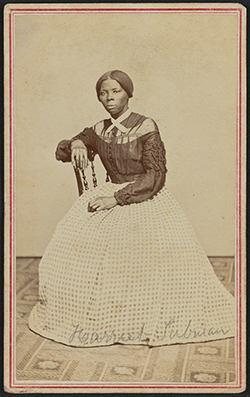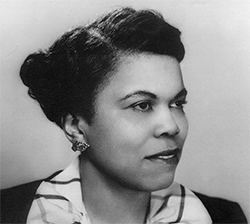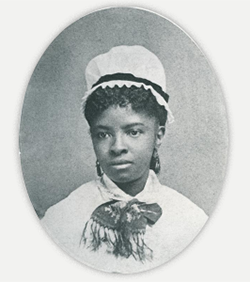Dear Colleagues,
For the last several years, I have highlighted Black physician scientists like Dr. Louis Tompkins Wright and Dr. Charles Richard Drew who have made significant contributions to the medical field in the United States. I recently came across this information highlighting other influential African American physicians and scientists.
In addition to these physician scientist leaders, there are outstanding African American nurses whose contributions are also important to highlight. I would like to recognize just a few of these nurses and their lasting contributions.
Harriet Tubman, 1822-1913

Many of us are familiar with the name Harriet Tubman, a formerly enslaved woman who was instrumental in leading slaves to freedom as a conductor on the Underground Railroad. Tubman served the Union Army during the Civil War, and while many of us are familiar with her story, her service as a nurse is often overlooked.
In 1862, Tubman served as a nurse in Beaufort, South Carolina, and was appointed matron of a hospital in Fort Monroe in Virginia where she cared for sick and wounded Black soldiers. Unfortunately, Tubman did not receive pay or pension as a nurse during the Civil War.
In the book “Harriet: The Moses of Her People,” author Sarah H. Bradford wrote this of Tubman: “She nursed our soldiers in the hospitals, and knew how, when they were dying by numbers of some malignant disease, with cunning skill to extract from roots and herbs, which grew near the source of the disease, the healing draught, which allayed the fever and restored numbers to health.”
Despite her service, Tubman was denied a nurse’s pension, even after the petitioning of then U.S. Secretary of State William H. Seward. The only monetary acknowledgment she received for her service was through her widow’s pension based on her husband’s service in the Civil War, which was increased from $8 to $20 a month in consideration of her personal services to the country.
Estelle Massey Osborne, 1901-1981

Estelle Osborne attended nursing school in St. Louis at a time when only 14 of the 1,300 nursing schools in the country admitted Black students. During this time, the American Nursing Association refused membership to Black nurses. Osborne studied at St. Louis City Hospital, which later became known as the Homer G. Phillips Hospital. This hospital was the largest exclusively Black, city-operated general hospital in the world and at the time served more than 70,000 people.
Over the next few years, Osborne earned several accolades, including being the first Black nurse to receive the Julius Rosenwald Fund Scholarship and the first Black nurse to earn a master’s degree, receiving a Master of Arts from Columbia University Teachers College in New York City.
She then became a researcher for the Rosenwald Fund, where she studied rural life in the deep South, with a focus on ways to improve health education in rural Black communities. Following a five-year period as president of the National Association of Colored Graduate Nurses, Osborne returned to the Homer G. Phillips Hospital as its first Black superintendent of nurses, as well as the first Black female director of the hospital’s nursing school.
In 1943, to address a shortage of nurses both in the U.S. and overseas in the military, Congress enacted the Bolton Act, which appropriated $160 million in federal funding to nursing schools across the country. Osborne played a key role in ensuring funds from the Bolton Act benefited Black nurses. She would go on to serve in several prominent national leadership positions and helped pave the way for generations of Black nurses.
Mary Eliza Mahoney, 1845-1926

Mary Mahoney is the first Black nurse to graduate from nursing school and receive a professional nursing license in the U.S. Born in 1845 in Boston to freed slaves, she studied at Phillips School in her hometown, which in 1855, became one of the first integrated schools in the country.
As a teenager, Mahoney began working at the New England Hospital for Women and Children, where she worked for 15 years in a variety of roles, including as a nurse’s aide. In 1878, a 33-year-old Mahoney was admitted to the hospital’s nursing school. It was a demanding program and few who began their studies graduated, though in 1879, Mahoney completed the program and became the first African American in the country to earn a professional nursing license.
Following her training, she continued a 40-year-career in the profession. In 1896, she joined the Nurses Associated Alumnae of the United States and Canada, the precursor to the American Nurses Association. Upon her retirement, she continued to fight for women’s rights and was among the first women who registered to vote in Boston following the ratification of the 19th Amendment.
As we take just a glimpse into the lives of these distinguished leaders in nursing, it is important for us to recognize and reflect upon their important contributions.
Sincerely,

Rick Barohn, MD
Executive Vice Chancellor for Health Affairs and Hugh E. and Sarah D. Stephenson Dean, School of Medicine
rbarohn@health.missouri.edu





